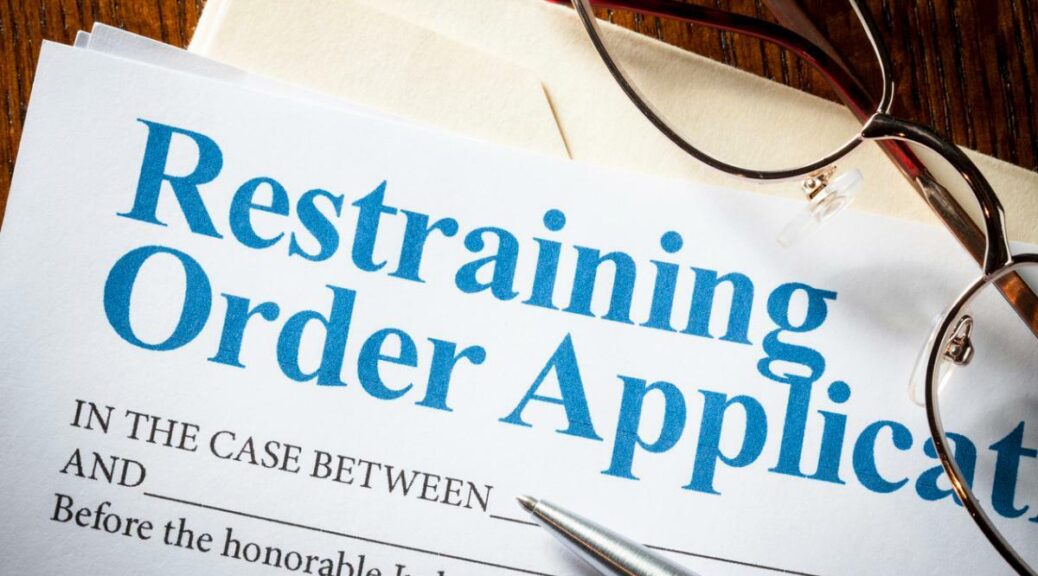A domestic violence restraining order is issued by courts to protect people from threatened or actual abuse from others with whom they have a relationship. California law allows granting protective orders for physical, psychological, and emotional abuse. California Family Law Attorney Judy L. Burger can help you understand more about restraining orders and when you need to petition the court for one.
Here is some basic information about domestic violence restraining orders that you should know.
You can also get immediate assistance by calling the National Domestic Violence Hotline at 1-800-799-7233.
Who Can Request a Domestic Violence Restraining Order in California?
Anyone age 12 and older can request a domestic violence restraining order if they have a close relationship with the person who has threatened abuse or actually committed abusive acts. California law defines a close relationship as including individuals who are:
- Dating
- Used to date
- Currently or previously living together in a relationship (not roommates)
- Married
- Separated
- Divorced
- Co-parenting a child
- Blood relatives (parent, grandparent, sibling, etc.)
- In-laws
You may also need an ex parte, or emergency, restraining order. Attorney Judy Burger can explain more about this temporary measure. Call us now for assistance.
How Can a Domestic Violence Restraining Order Help Me?
Why should you file for a domestic violence restraining order against someone? This legal court order provides a layer of protection from harm. The court may enact the following measures against someone:
- Stop abusive actions
- Stay away from you (including anyplace you frequent, like home, work, or school)
- Have no contact with you (including phone, text, mail, email, deliveries, third persons, etc.)
- Provide support (child support, payments on jointly-owned property, etc.)
- Grant exclusive use (like a home or car jointly-owned with the abuser)
- Pay restitution (such as for property damage or medical expenses caused by abusive actions)
- Relinquish firearms in their possession
- Attend a treatment program
- Undergo regular drug tests
The courts may also issue orders relating to child custody, support, and visitation in consideration of the child’s safety and welfare. They may order the abuser to stay away from places the child may frequent, such as schools, daycare, doctors, after-school activities, and more.
Tips for Filing a Restraining Order
Attorney Judy Burger can walk you through the process of filing for a domestic violence restraining order in California. This is often helpful due to the anxiety and fear that often accompanies the circumstances making it necessary. Her experience and confident demeanor are an anchor to help you as you seek stability, relief, and direction during troublesome times.
As you consider what is needed for a restraining order, it is helpful to think of your petition as a blueprint for testifying at a trial. What should be included?
- The specifics of the abuse or threats you have experienced. Be as detailed as possible, including dates, times, locations, and other pertinent facts. Think of it as a log of your abusive experience.
- Consider the type of help you need. What do you need the order to accomplish? Stop the abuse, prohibit contact, protect your children, provide support or other measures.
- Collect evidence to accompany the order petition. Screenshot emails, texts, and social media posts. Photograph damaged items and physical trauma from the abuse. Photograph destroyed property, clothing, personal items like a damaged phone, and other evidence.
- Collect witness statements. Record their testimony in writing or digitally.
The more specifics you can provide, the stronger your petition for a restraining order. Overwhelming evidence can also motivate the court to enact stronger protections. Think through the above factors and be ready to discuss everything with Attorney Judy Burger in a confidential consultation. She can also provide further guidance and advice on your next steps.
Get Help from a Certified Family Law Specialist
Judy L. Burger is certified by the California State Bar, Board of Legal Specialization as a Certified Family Law Specialist. She is your strong and aggressive advocate in highly conflicted domestic matters when you need the law on your side. Her encyclopedic knowledge of CA law and astute representation offers the protection and guidance you need in domestic violence cases. The Law Offices of Judy L. Burger has locations throughout Northern, Central, and Southern California for your convenience. Get the help you need to stop the abuse and get on with your life. Call us today.






